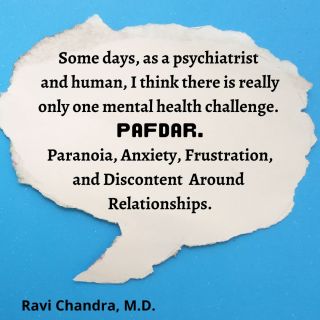Freudian Psychology
"Killers of the Flower Moon," Civilization, and Discontents
Martin Scorsese's film displays the exploitative dangers of the human mind.
Posted February 29, 2024 Reviewed by Gary Drevitch

As we exited a screening of Martin Scorsese’s epic and ten-time-Oscar-nominated film Killers of the Flower Moon, I turned to my friend and said, “Well, that was a fair summary of American history.”
The film relates the story of the real-life exploitation of the oil-rich Osage nation in Oklahoma in the 1920s. (Spoilers ahead.) One white man, William Hale, riding atop the foundational racism and genocide of American history, inveigles his way into the nation, wins the community’s trust, and sets up a scheme to inherit their land rights before murdering them in the “Reign of Terror.” At least 60, and possibly hundreds, of Osage were murdered between 1918-1931, before Hale and others were convicted and sent to prison. Hale is an exemplar of the colonial mindset, and carries out its algorithm in horrifying detail.
Remarkably but unsurprisingly, the investigation into the murders only happened because of a payment to the federal government by the Osage. This was all apparently big news back then, but I was totally ignorant of the history before I saw the film. Still, Killers of the Flower Moon strikes a deep chord, and calls us to consciousness, remembrance, conscience, reckoning, reparation, and eventual reconciliation. Scorsese precedes the film with a brief explanation of his collaboration with the Osage nation. This, and the incredible work of Indigenous actors and tribal members, including the wonderful Lily Gladstone, nominated for a Best Actress Oscar and winner of four other prestigious Best Actress awards this season—the first Indigenous person so honored—make this film a vital, necessary, and hopeful antidote for the toxic history of annihilation we have inherited as Americans. There are many broken treaties and failed possibilities in this land of broken dreams. We are all implicated, but potential antidotes ourselves.

In Civilization and Its Discontents, Freud noted that we are threatened from our bodies, nature, and other people. By junior high school, we learned this as the classic narrative conflicts of man vs. self (including the psyche as well as the body), man vs. nature, and man vs. man. As Freud wrote, “The suffering which comes from this last source is perhaps more painful to us than any other.” Clearly, the underlying trait and tendency which most threatens us is selfishness. From selfishness, or its extreme forms—malignant narcissism and sociopathy—come a lack of empathy, greed, hatred, and the antagonistic drives to dominate and exploit in "self-advancement.” Most threatening of all is when demagogic, megalomaniacal leaders come to head a group, faction, or nation, scapegoating enemies and encouraging violence against them. This is precisely what happened on the Osage nation in the 1920s, and what Freud saw unfolding in Europe as he updated his book in the early 1930s. It is arguably happening before our eyes around the world, as America and many nations struggle with the rise of autocratic leaders. History contends with the challenges of abusive power, and we have choices to make. It seems like everything is on the table these days, asking fundamental questions of us as individuals and as "civilizations." Our discontents may be many, and they can be channeled to turn us against each other by unscrupulous actors. (See article on resentments in references.)
Freud closes his book with the open question of whether we can master aggression, whether love (“Eros”) can overcome our ability to destroy ourselves. He wrote this even before the atomic bomb was invented. The last century has included not only the atomic bombings of Hiroshima and Nagasaki and the Holocaust, but also the Cambodian genocide; Stalin and Mao's regimes which led to the deaths of millions from famine and abuse; the more recent atrocities at our own border, in Israel on October 7th, 2023, and in the subsequent siege of Gaza killing almost 30,000 civilians, including 12,000 children to date. The colonial algorithm has motivated West Bank settlers (see references). Aleksei Navalny recently died in prison, likely at the behest of Vladimir Putin. Still, disease has killed far more people, making medicine, science, sanitation, and nutrition needed allies for moral conscience as much as non-violence, democracy, peace, and justice.
But for our moral conscience, I think our better angels are our truest nature, if we give them room to soar.
Dacher Keltner, a social psychologist, argues that we are “born to be good,” in his book by the same name. He points to “survival of the kindest,” and in many ways we are biologically, psychologically, and culturally motivated to aid one another.
Darwin wrote, “the social instincts lead an animal to take pleasure in the society of its fellows, to feel a certain amount of sympathy with them, and to perform various services for them.”
Biologist Frans de Waal demonstrates in his work that empathy, not aggression, is at our core as well as our primate relatives.
Of course, humans have obvious and great potential for both benevolence and truculence, kindness and cruelty. Which one wins in any given moment and over time depends on our influences and cultivation – which one we feed. Whom will we consider as part of our “group” and thus worthy of aid, affection, and protection? Can we see everyone as human, or do we draw our lines more closely, selfishly, and factionally?
A lot depends on what we individually and collectively “worship,” what monuments we erect in our psyche and society. The monuments I’m most wary of, as a psychiatrist and American, are wealth; celebrity or the drive for power through fame; white supremacy; and militarism. These all exist, and they all threaten the American and human experiment. Will we choose belongings, or belonging? Egalitarianism and mutual uplift, or domination at others’ expense?
But there are signs of hope around us. This week, Dr. Ruth Gottesman donated $1 billion to the Bronx-based Albert Einstein School of Medicine, making the school tuition-free in perpetuity. Notably, she emphasized that the school not be renamed in her honor. The actress Zendaya donated $100,000 to CalShakes, a theater in the SF Bay Area. And the LA Unified School District launched a $15 million campaign to fund the instrument repair operation featured in the heartwarming Oscar-nominated film The Last Repair Shop. I’m sure Hollywood can make that magic happen, as it could and should for schools and children everywhere.
Here's hoping the “Bronx Project” of expansive life exemplified by Dr. Gottesman wins out over the “Manhattan Project” of targeted and universal annihilation we also hold in our minds.
2024 will be pivotal for the American experiment and psyche. I hope we can cultivate survival through Eros, and not succumb to Thanatos, the urge to death and extinction.
© 2024 Ravi Chandra, M.D., D.F.A.P.A.
"Treating America’s #1 Addiction: Abusive Power." A Presentation by Dr. Ravi Chandra. Nikkei Digital Media YouTube channel, October 2, 2023:
References
Chandra R. Which of Six Power Types Will You Embody and Support? Psychology Today, September 15, 2022
Chandra R. MOSF 18.12: Election Season 2024: Deconstructing the Trump/Far-Right Playbook and Propaganda, and Constructing a Positive Response From Our Shared Humanity and Reality. East Wind eZine, December 1, 2023
Chotiner I. The Extreme Ambitions of West Bank Settlers. The New Yorker, November 11, 2023
Chandra R. The Abuser-Victim Dyad: Central to Understanding Our Times. Psychology Today, December 14, 2023




